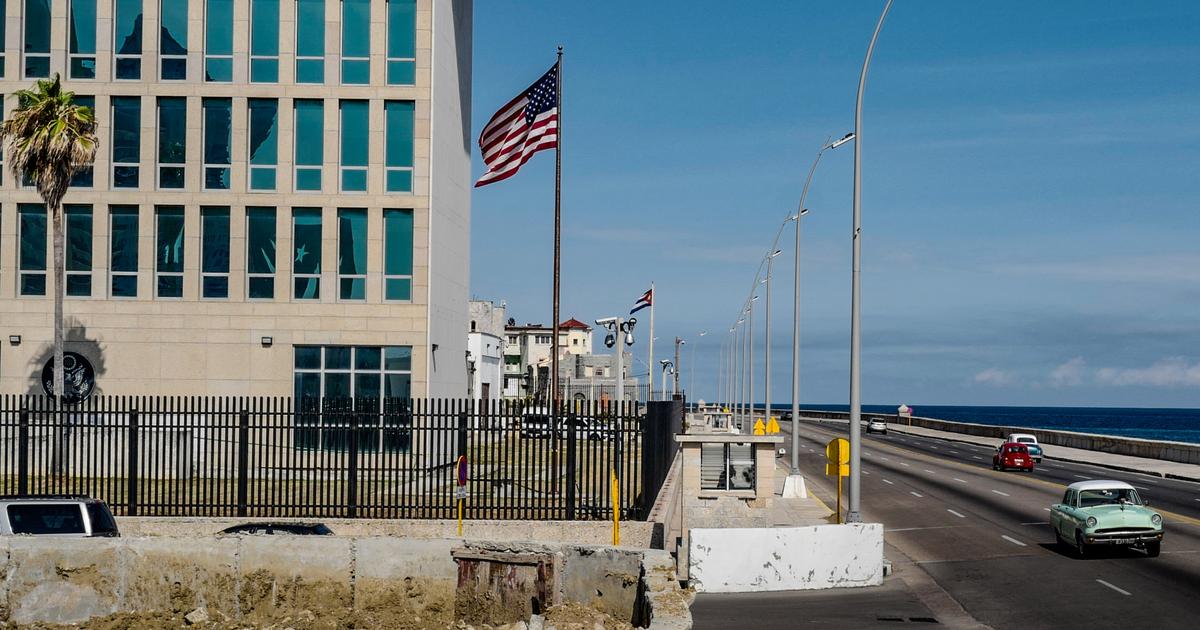Icon: enlarge
Not particularly welcome: EU top diplomat Josep Borrell (left) at the meeting with Russian Foreign Minister Sergei Lavrov
Photo: RUSSIAN FOREIGN AFFAIRS MINISTRY HANDOUT / EPA-EFE / Shutterstock
Persona non grata literally means: an "unwelcome", "undesirable" person.
It is the official formula with which the German government has now expelled a high-ranking Russian diplomat from the country.
The reason is banal: a few days ago Russia itself declared a German diplomat to be a persona non grata, against violent protests by the federal government.
This is the expected answer.
But who and what is currently desired in German-Russian relations is not a banal one, it is a very exciting question.
The old rules of diplomacy between Berlin and Moscow, between Europe and Russia no longer apply.
That is the real message the Kremlin was expressing with the expulsion, and it is difficult to find an answer to.
Three unusual expulsions
Last Friday, the Russian Foreign Ministry declared the head of the political department at the German embassy to be an undesirable person, as did a Swedish and a Polish diplomat.
There were three unusual things about it:
The
accusation
: The three diplomats, it was said, had "participated" in "illegal actions" for the release of the opposition politician Alexei Navalny and thus violated Russian law.
In fact, the diplomats had only watched demonstrations.
According to international law, one of the tasks of diplomatic personnel is to “inform themselves about conditions and developments in the receiving state”, as stated in the Vienna Convention on Diplomatic Relations.
The
type
of exposure: the diplomats' names, roles and photos were shown on the Russian television news, including footage from police surveillance cameras.
That too is highly unusual.
The
timing
: The expulsion was announced during the visit to Moscow by Josep Borell, the top EU diplomat.
And this despite the fact that the alleged violations of the diplomats had already been done almost two weeks ago.
It was a deliberate humiliation for Borell - he knew nothing and was, so to speak, an unwelcome, undesirable person himself.
One question is why Borell allowed himself to be presented in this way in an interview with Foreign Minister Sergei Lavrov.
The other is: What was Moscow's calculation in this escalation?
Why nudge an EU representative who is apparently willing to enter into dialogue unnecessarily hard on the head, instead of dealing with the conflict with Europe in the usual, already gruff style, or simply ignoring it?
And how does Russia's leadership benefit from snubbering its most important EU partner, Germany, with whom it is currently trying to complete the Nord Stream 2 pipeline project?
Affront wasn't a slip up
Borell himself wrote in a thoughtful text on his visit to Moscow that the procedure was "not entirely unexpected, but regrettable - and, if I may say so, also from Russia's strategic perspective."
But Moscow's affront was not a short-term slip.
It is a strategic calculation.
It is not about ending the dialogue with Europe or with Germany.
It's about giving it new, tighter guard rails, so to speak.
Russia's leadership knows that if it does not act now, the Navalny case will be held against it forever.
Lavrov's always sullen and confrontational tone cannot hide the fact that Russia must constantly justify itself to Europe for never getting off the defensive.
And the Navalny matter is no longer only addressed in forums such as the Council of Europe or the OSCE.
At the end of January, the G7 suddenly condemned Navalny's arrest and arrest of demonstrators in Russia.
From a Russian point of view it was downright bizarre: What mandate, so people asked in Moscow, does a forum of major industrial nations have to express their views on our domestic policy?
The EU, in the person of Borrell, also signed the declaration.
Russia is about legitimacy and sovereignty
For the Kremlin, it is by no means irrelevant when Navalny's ghost has recently appeared on all international platforms like a ghost at the wrong time.
It's about your own legitimacy and sovereignty.
That is why Russia is counter-attacking.
It tears down diplomatic traditions that are secured by international law.
It has also made it a rule to answer any criticism of its internal circumstances with mirror-image reproaches - or with what it considers mirror-image reproaches.
Moscow has little to lose.
It is not afraid of sanctions, they could even consolidate its own society.
If relations with Germany and other EU states are damaged, then from Moscow's point of view that is a necessary collateral damage.
In any case, it is better to do this damage now than in autumn, when Chancellor Angela Merkel leaves the stage.
Josep Borrell, however, learned from meeting Sergei Lavrov what so many had to learn before him: Anyone who is looking for a fresh start with Putin's Russia and wants to prove his impartiality should not assume that he will be welcomed in Moscow for that reason alone desired person is.
Icon: The mirror









